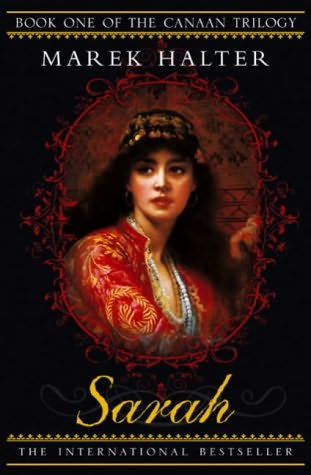
Titles: Katharine, The Virgin Widow; The Shadow of the Pomegranate; The King’s Secret Matter
Author: Jean Plaidy
Length: 643 pages (all three books in one volume)
Highly Enjoyable!
As I have mentioned many times (most recently, perhaps, right before my vacation?), I am enthusiastic about Tudors history – both fictional and real, actual history. To further feed this obsession, I scoured GoodReads for any and all books that I could find. Not too far into my search, not surprisingly, I came across Jean Plaidy’s name and the seemingly never-ending list of titles.
The books that I wanted to start with are the three about Katharine of Aragon – Spanish Princess, English Queen, and the first lady unlucky enough to NOT provide Henry the VIII with a strapping young son. While I know that the Showtime series isn’t the most historically accurate account out there, I was drawn to their portrayal of her and immediately felt some warmth towards her personality and story. While I have yet to read an actual biography about her, the fictional accounts of her that I’ve encountered so far (The Other Boleyn Girl and these books by Jean Plaidy) paint her in a similar way to the show, leading me to believe that she truly was a kind-hearted, spiritual woman who commanded respect and honor.

Reading Plaidy’s novels felt like I was reading closer to an actual historical account of the happenings in the Tudor court than when reading The Other Boleyn Girl. Because of this, while still enjoyable, it took a little longer to get through them. There is a fair amount of dialogue and action, however, and the keeps the books an entertaining read. And while the story is undoubtedly focused on Katharine of Aragon, she doesn’t hold back from sharing a glimpse into what King Henry VIII, Cardinal Wolsey, and the rest of the major players are up to, thinking, or plotting.
The version that I purchased (published by Three Rivers Press, featuring an awesome reading guide/questions) is the only version to contain the entire trilogy covering Queen Katharine’s story from her arrival in England from Spain in 1501 (to marry the young and sickly Prince Arthur) until her own heart breaking death on January 7th, 1536. Let’s take a closer look at the three individual books in this volume….
 Katharine, The Virgin Widow
Katharine, The Virgin Widow
IN THE ROYAL MARRIAGE MARKET
THE INFANTA OF SPAIN WAS A TRUE PRIZE.
In the eyes of the world, Katharine of Aragon was a precious object to be disposed of for the glory of Spain. Her parents, Queen Isabella and King Ferdinand, send her to England to become the bride of Arthur, Prince of Wales.
But soon her frail husband was dead, and a fateful question loomed: Was the marriage consummated, as Katharine’s priest avowed, or was the young widow still a virgin? On that delicate point hinged Katharine’s–and England’s–future. Meanwhile, waiting in the wings was her willful, handsome brother-in-law, bold Prince Henry, who alone had the power to restore Katharine’s lost position.
Jean Plaidy’s narrative genius sparkles in this story of a remarkable royal marriage that inspired some of history’s bloodiest deeds . . .
I struggled slightly to get into the first book, but, really, only because I needed to adjust to the third person narrative (I’m a sucker for first person…). The story begins with an introduction to the children of King Henry VII and Elizabeth of York during a horrific scene in which the king’s best dogs fight lions to the death. This scene, in all its gruesome detail, sets the reader up for the plight of anyone else’s wish (or bravery) placed against that of a king’s. When the dogs win, they still lose because they dared stand up against the king of all animals. It’s important for all to know, and heed, their place in the social order.
At the beginning of the stories, the children are awaiting (quite eagerly) the arrival of the Infanta from Spain – a young girl born from the honorable Queen Isabella and her consort, Ferdinand. Briefly, upon arrival (and after settling in), Katharine grows accustomed to the young prince she is set to marry. He’s kind, shy, faithful, and does not appear to have a cruel bone in his body. Everything changes when he dies during an outbreak of the sweating disease, however. This is when Katharine enters into the first troublesome period of her life. Forced into living without any allowance, she stays in a house with her ladies in waiting and servants, unable to pay them and unable to leave to return to Spain. Her future is full of uncertainty and relies upon the whims of a fickle and greedy King.
The novel ends with her marriage to King Henry VIII – as he apparently loves to go against the advice and demands of anyone else – for why should he listen to them? HE is the King of England. In the final scenes of Katharine, the Virgin Widow it appears as though her fortune has changed and happier days lie ahead. Little does she know…
 The Shadow of the Pomegranate
The Shadow of the Pomegranate
The marriage of Katharine of Aragon and King Henry VIII was a match made in heaven. But hardly were they wed when powerful people in Henry’s court started spinning webs of intrigue around the innocent royal pair.
King Henry VIII is still a young man. He loves games, dressing up, and proving to his people that he loves them. Some of actions seem brazen while all of actions seem highly juvenile. Above all else, though, he yearns to have a son and is confidant that he and Queen Katharine will produce many. Only time will tell, though, as their first child born is, in fact, a son, but dies only after a very short time of being alive.
As we all know now, they never have a son. Instead they have a healthy, intelligent, and highly talented daughter Mary. If only she were born a boy… is a thought that is repeated throughout this book. Katharine, alone, seems to be able to find the tenderness in his eyes and is willing to see him with a greater filter of warmth than most others might be willing to. Perhaps even greater to her love for him, however, she adores her daughter and is devoted to protecting her interests.
The second book also brings the rise of Cardinal Wolsey, who acts as a major influence in directing the course of the king’s life – all with the intent of progressing his own interests.. The second book also brings an increase in the tumult that is King Henry VIII’s moods. His rage flares up and, once aggravated, seems to know no bounds. The longer he goes without a son, or, as he sees it, a legitimate heir to the throne, the angrier and less reasonable he becomes.
By the end of the The Shadow of the Pomegranate (which, by the way, is Katharine’s symbol, which is representative of fertility – cruel irony) with the King’s infidelity becoming public knowledge and an accepted fact of how things are going to be. Bessie Blount, his favored mistress in the court, produces him with a son, whom he names Henry Fitzroy. The affair and child are both flaunted in front of Katharine, but she maintains composure and finds solace in the fact that she is the Queen of England, beloved of the people.
 The King’s Secret Matter
The King’s Secret Matter
The personalities and intrigues of the English royal court are brought to vivid life in this tale of Katharine of Aragon, the first wife of Henry VIII. The twelve-year marriage of Henry and Katharine has declined from an idyllic union into an uneasy stalemate. The king’s love for his aging queen has grown cold, and he is angry with her failure to give him the heir to the throne he desperately wants. When the seductive Anne Boleyn arrives at court, the king is captivated by her dark beauty and bold spirit, and becomes obsessed with his desire to possess her. With his chief advisor, Cardinal Wolsey, the king devises a secret plot to declare the marriage with Katharine null and void. But Katharine refuses to surrender to his wishes and fights desperately to retain her title and safeguard her daughter, Mary. The ensuing power struggle is one of the turning points in English history, and these pages capture it in spellbinding detail.
We can all guess what happens in the third book, The King’s Secret Matter, can’t we? The state of Katharine’s life is in rapid decline. The king barely visits her. Her nephew, the emperor, constantly breaks promises with King Henry VIII, thus, creating a distaste for all thing Spanish in his eyes – his wife being one of those “things”. There are countless women in court who jump at the chance to sleep with the King and he is more than happy to make their wildest dreams come true.
And, as in any royal story, people are unceasingly plotting, planning, and seeking ways to further their own interests, at no matter what cost to others. Unfortunately, for Queen Katharine, there aren’t many in the court able to fight for her interests since her interests are contrary to the King’s. And, in this book, he does not shy away from sending “traitors” to the chopping block. By the final page, we have bid adieu to the majority of the original players and are faced with a new set taking center stage. And at the very center of that stage is Anne Boleyn (or, as it appears the people of England call her, Nan Bullen).
Katharine, once a woman to know all of the comforts and honors of a Queen, dies in a dank, lonesome building, far away from her daughter, Mary. Throughout all of her protestations against the King’s cry that their marriage was never valid, she cared most about preserving her daughter’s honor, dignity, and name.
These books increased my admiration and love for Katharine of Aragon. They also made me feel even more excited to learn more about this period of English history. Additionally, I will also read more of Jean Plaidy’s novels. Her writing is clean and leaves you feeling like you actually, possibly, learned something.
Are you interested in the Tudors? Which authors do you prefer?
 Title: Driftless
Title: Driftless













